

As the trend of urban shrinkage intensifies, beyond mere spatial retreat and renewal, what methods hold the greatest promise for assessing and mitigating the long-term economic decline in these urban areas?
When tackling urban regeneration projects, particularly in post-industrial cities, which policies prove to be more effective?
In the evolution of urban design theories and methodologies, how should we re-examine the key elements and mechanisms within urban design?
Amid the backdrop of rapid urban transformation once again, which specific urban design strategies have most effectively addressed the challenges posed by socio-economic polarization and spatial fragmentation?
How is people's virtual life being reshaped and altered by digital design?
With the ongoing process of global urbanization, how can cities adopt different strategies for renewal and reuse at various scales while ensuring high synergy?
How can we establish the crucial connection between built environment interventions and health outcomes, and propose more effective urban planning for health? How do digital and intelligent technologies enhance the scientific rigor of related policies and spatial decision-making processes, as well as the effectiveness of their outcomes?
In response to these pressing questions, the Fourth Global Deans' Forum of the College of Architecture and Urban Planning of Tongji University convened deans from five world-leading institutions, alongside scholars, faculty, and students from various fields, to collectively seek answers. The forum delved deeply into two core themes: Reimagining Transforming Urbanisation and Reimagining Transforming Urbanisation. The insightful perspectives and rich information shared by the guests provided invaluable inspiration and profound reflections for us to build a more sustainable and livable planet for the future.

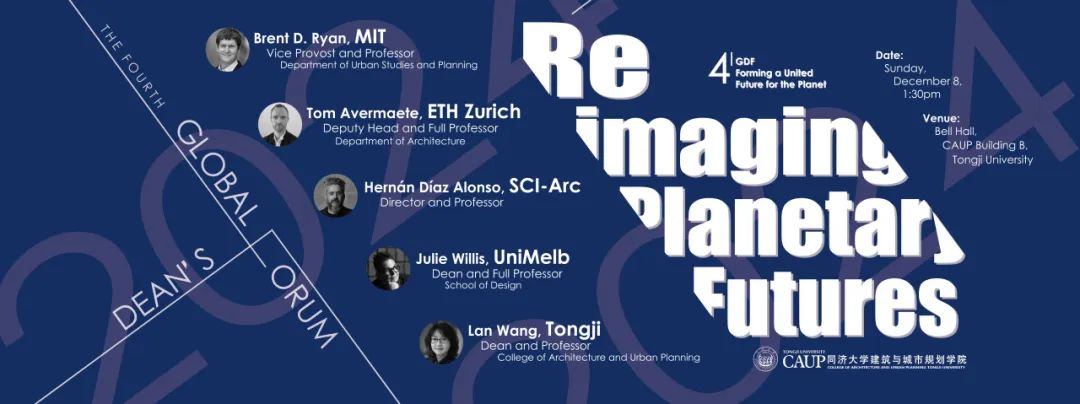
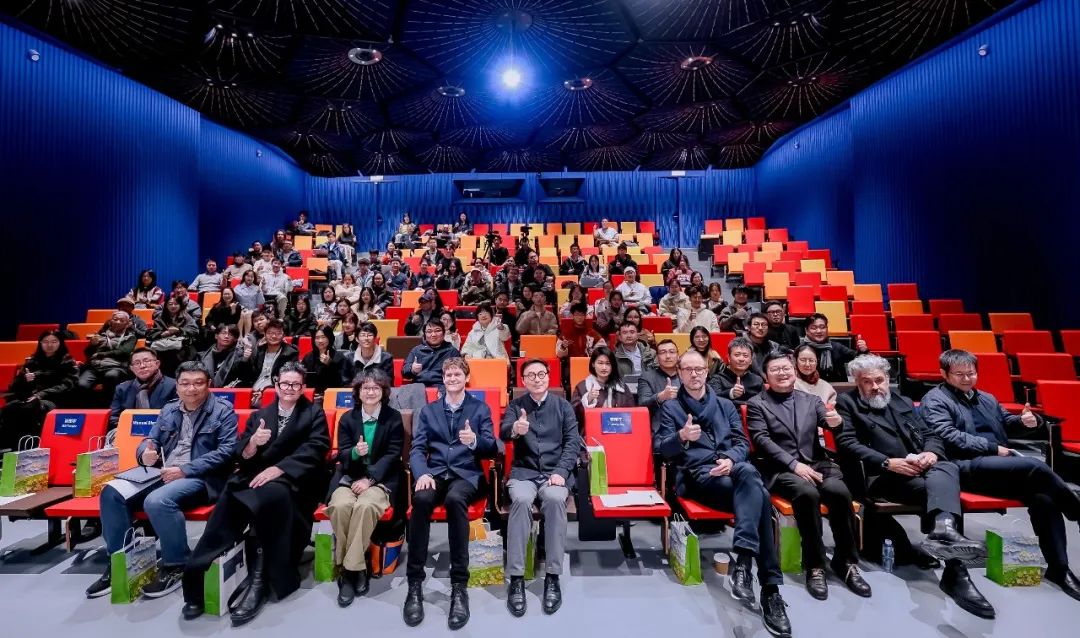
On December 8, 2024, the Fourth Global Deans' Forum, titled Reimagining Planetary Futures, was grandly inaugurated in the Bell Hall of the College of Architecture and Urban Planning. This prestigious forum featured keynote speakers including Brent D. Ryan, Vice Provost, Professor of Urban Design and Public Policy, Department of Urban Studies and Planning, MIT. Tom Avermaete, Deputy Head and Full Professor, Department of Architecture, ETH Zurich. Julie Willis, Dean and Full Professor, School of Design, The University of Melbourne. Lan Wang, Dean and Professor, College of Architecture and Urban Planning, Tongji University. Professor Lou Yongqi, Vice President of Tongji University, Professor Li Xiangning, Head of the Division of Planning and academic development, Professor Manuel Blanco, Dean of the School of Architecture at the Polytechnic University of Madrid, Spain, as well as Professor Philip F. Yuan, Professor Shi Xing, and Professor Zhang Peng, all Vice Deans of the College of Architecture and Urban Planning, along with over 200 faculty members and students, attended the offline forum. Furthermore, the entire forum was live-streamed, attracting more than 5,000 online viewers. The forum was presided over by Dr. Yao Shen, Director for Global Relations, CAUP.
Opening Address
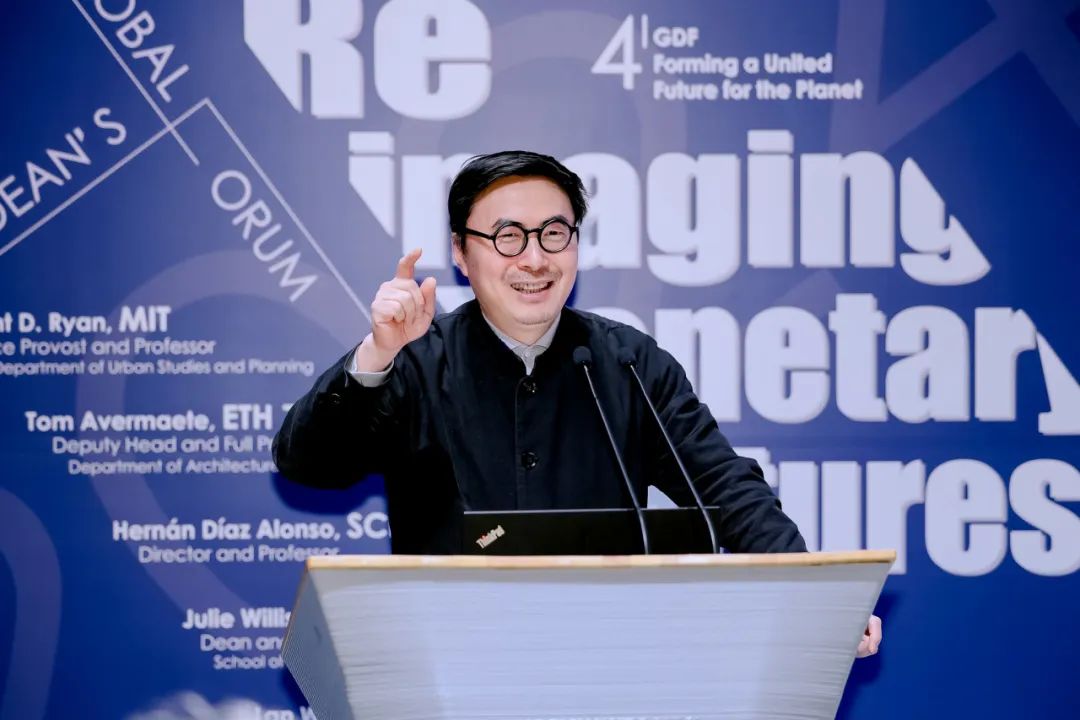
Professor Lou Yongqi, Vice President of Tongji University, delivered the opening address. Professor Lou reflected on the previous editions of the Deans' Forum, stating that past discussions on topics such as the shaping of the built environment and the transformation of education in architecture, planning, and landscape had inspired scholars, faculty, and students within the field. He emphasized that the Fourth Global Deans' Forum marked a milestone, not only by transitioning the event from an online to an offline format, bringing together faculty and students from around the world in Shanghai, but also by serving as a valuable platform for collectively envisioning the future of our planet amidst profound changes in the era.
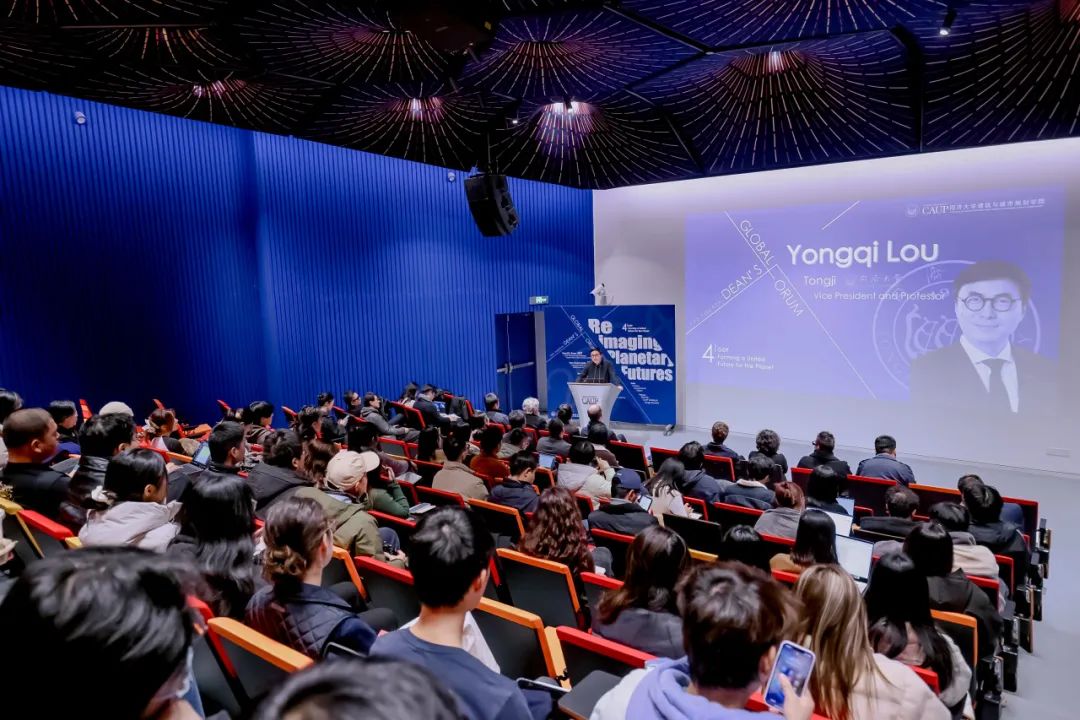
“
Reimagining Transforming Urbanisation
”
Brent D. Ryan
Vice Provost and Professor of Urban Design and Public Policy,
Department of Urban Studies and Planning, MIT
Shrinking Cities in the United States: An Overview of Strategies for Revitalization and Prospects for the Future
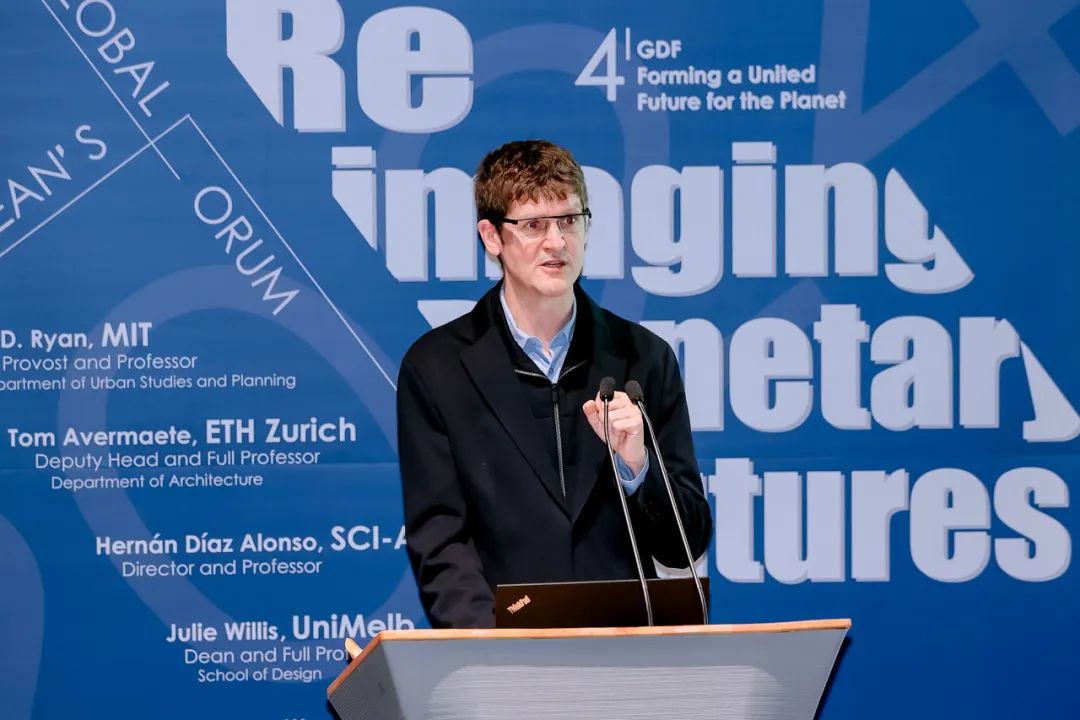
Professor Brent Ryan's presentation provided an overview of the geography of shrinking cities, highlighting the population decline trajectory in the Great Lakes region of the United States. He attributed this decline primarily to suburban growth, industrial decline, white flight, and urban renewal, each with its associated negative impacts. Professor Ryan delineated the geographic distribution of these declining areas and outlined relevant revitalization strategies. He presented a forward-looking perspective, highlighting positive shifts such as technological transformation, industrial rebirth, and immigration.
Using Detroit as a case study, he detailed various urban renewal scenarios. These included the Michigan Central Station and Book Tower renovations, which exemplified adaptive reuse led by private enterprises; the Canfield Street and Waterfront Residences projects, representing market-driven housing development; and urban renewal projects in the public domain, such as Ralph C. Wilson Jr. Centennial Park and the Circle Drive-In Plaza.
Finally, Professor Ryan analyzed that shrinking cities in the United States may stabilize at lower population levels. He emphasized that decline often presents numerous opportunities, prompting a reimagining of urban design, including open spaces, new housing, transportation systems, and urban structures. Based on past experiences, he advised that future efforts should avoid excessive demolition, preserve the best buildings, and make room for new development.
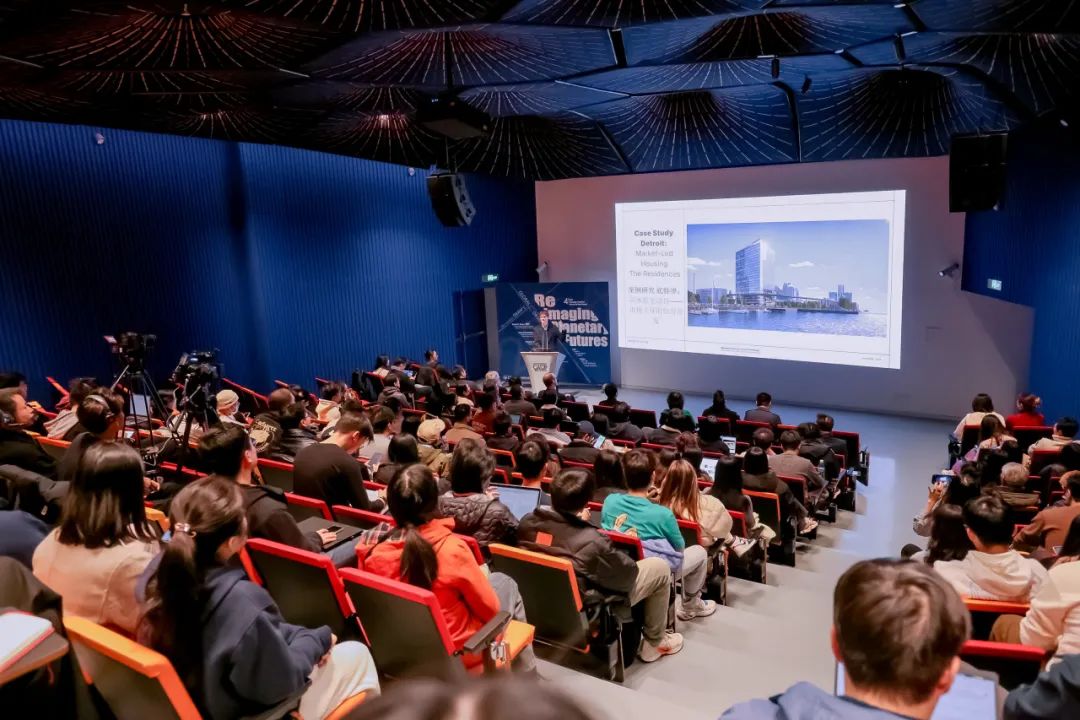
Tom Avermaete
Deputy Head and Professor, Department of Architecture,
ETH Zurich
Reciprocal Urban Design: The Prospect of Another History and Practice
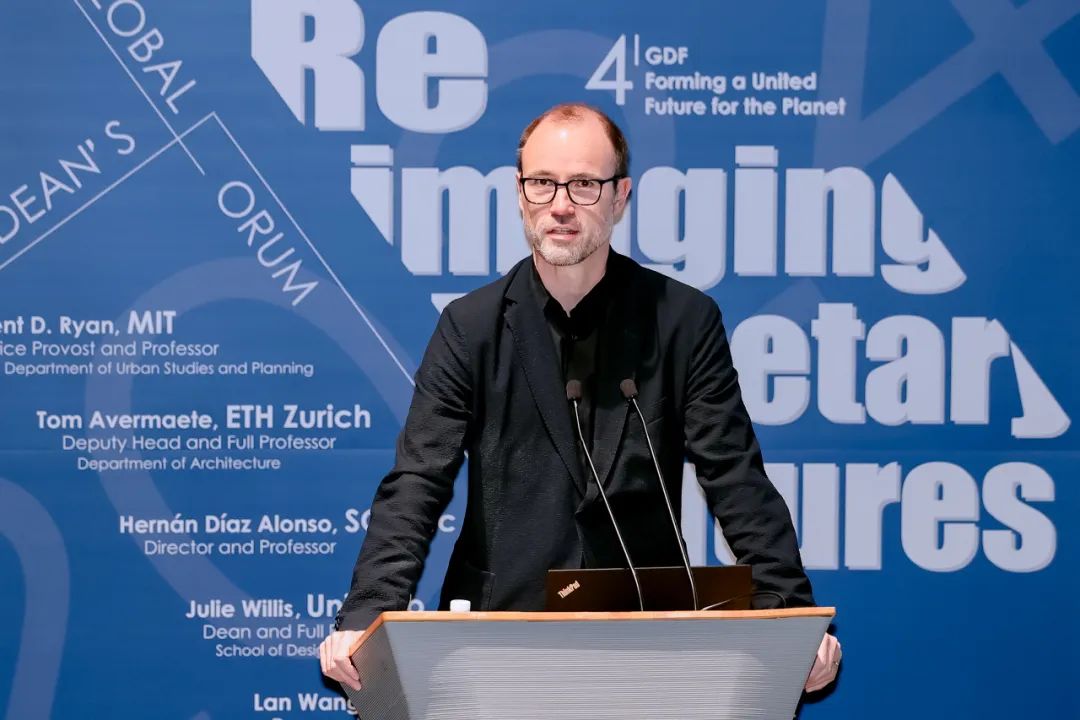
The field of urban design has long overlooked the resources that constitute buildings and communities. Urban historians often suffer from this resource amnesia, depicting architecture and urbanism as visions, ideas, and abstract concepts while neglecting the resource support underlying these concepts. Professor Tom Avermaete's Reciprocal Urban Design: The Prospect of Another History and Practice advocates for an approach known as reciprocal urban design. This is a new way of thinking about, designing, and implementing urban projects, grounded in the complex relationships with existing resource geography. It aims to reshape the conception, development, and maintenance of buildings and urban landscapes, as well as the understanding of architects' and urban designers' roles and responsibilities within the realm of resource geography.
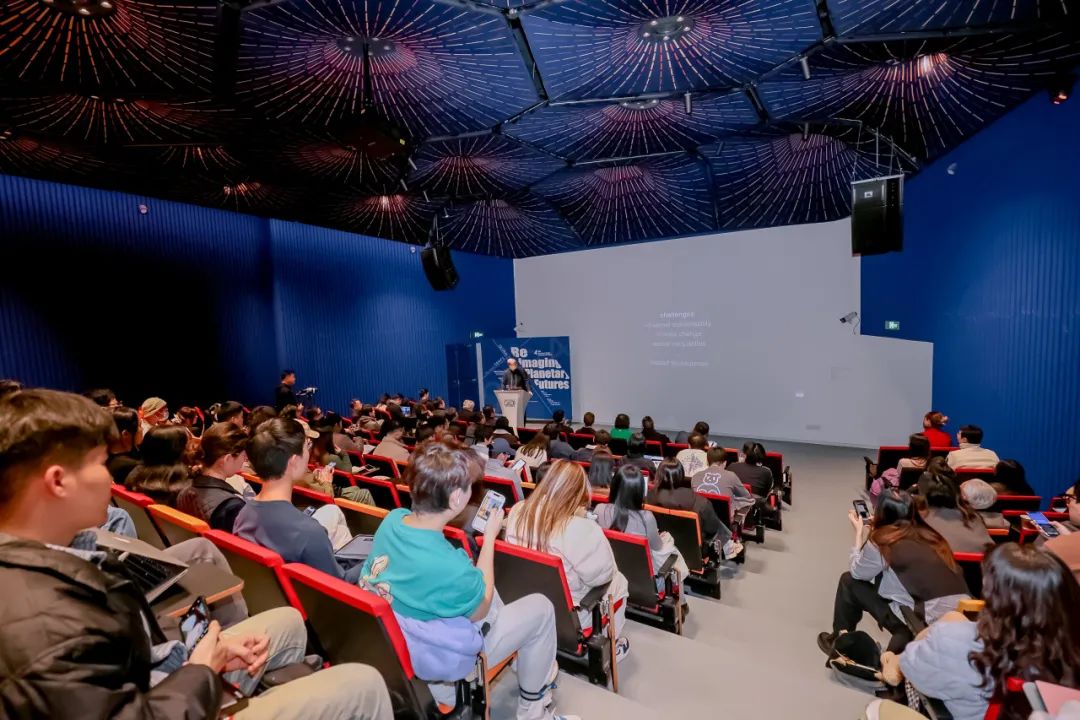
Hernán Díaz Alonso
Director and Professor,
Southern California Institute of Architecture
Everything is Something, but Something Isn’t Everything
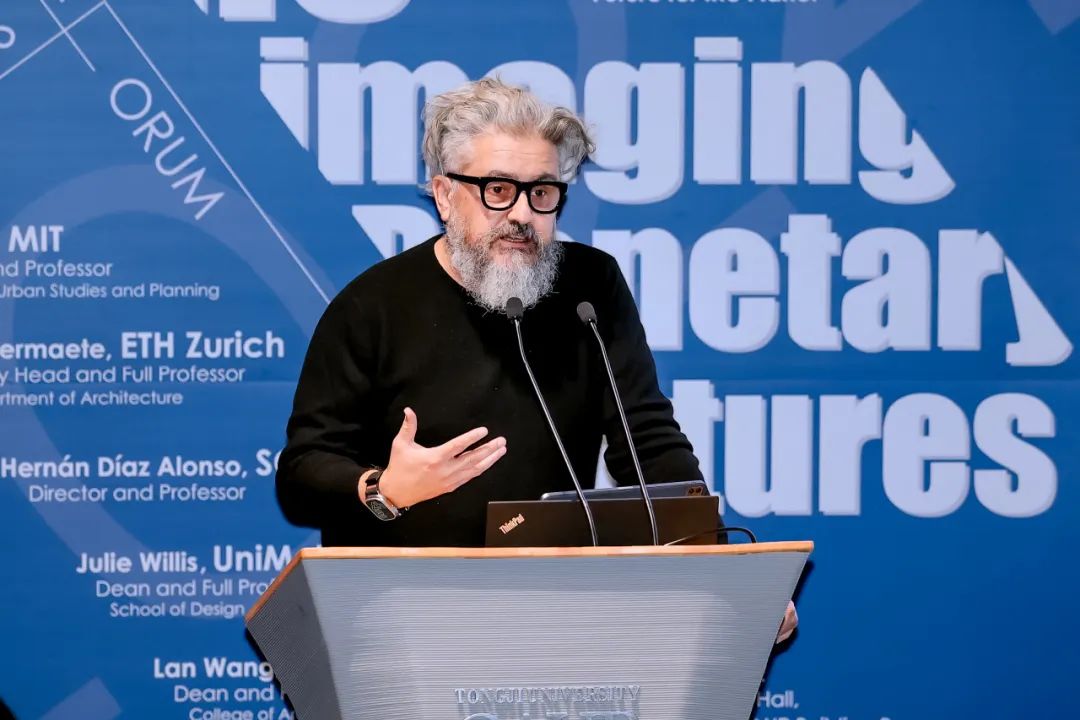
Prof. Hernan Discusses the Intersection of Architecture, Technology, and Culture with the Theme: “Everything is something, but something is not everything”.
Amid rapid advancements in technologies like AI, Prof. Hernan emphasized that “something not change ”. He approached this duality not as a scholar but as a designer, illustrating his perspective with a quote from Marcelo Villafane: “Architecture is a genius solution to a non-existent problem.” He argued that architects complicate problems as a means of cultural expression, proposing, “Architecture is not about just building or creating space; it’s about the approach of culture.”
Over the past decade, SCI-Arc has redefined its educational philosophy, positioning itself as more than a school of architecture—it’s a space where architecture itself is a way of thinking. Prof. Hernan remarked on the increasing importance of “historic telling” in today’s technology-saturated era, calling it one of our most powerful tools. He stressed that architecture thrives on tension—function and form, individuality and collectivity, present and past. It is within these tensions that architecture finds its true strength: existing within the constraints of reality while transcending them.
Prof. Hernan encouraged embracing the creative potential of emerging technologies to address challenges brought by rapid innovation. He advocated for leveraging the intersection of practice and academia through cross-disciplinary collaboration and shared innovation.
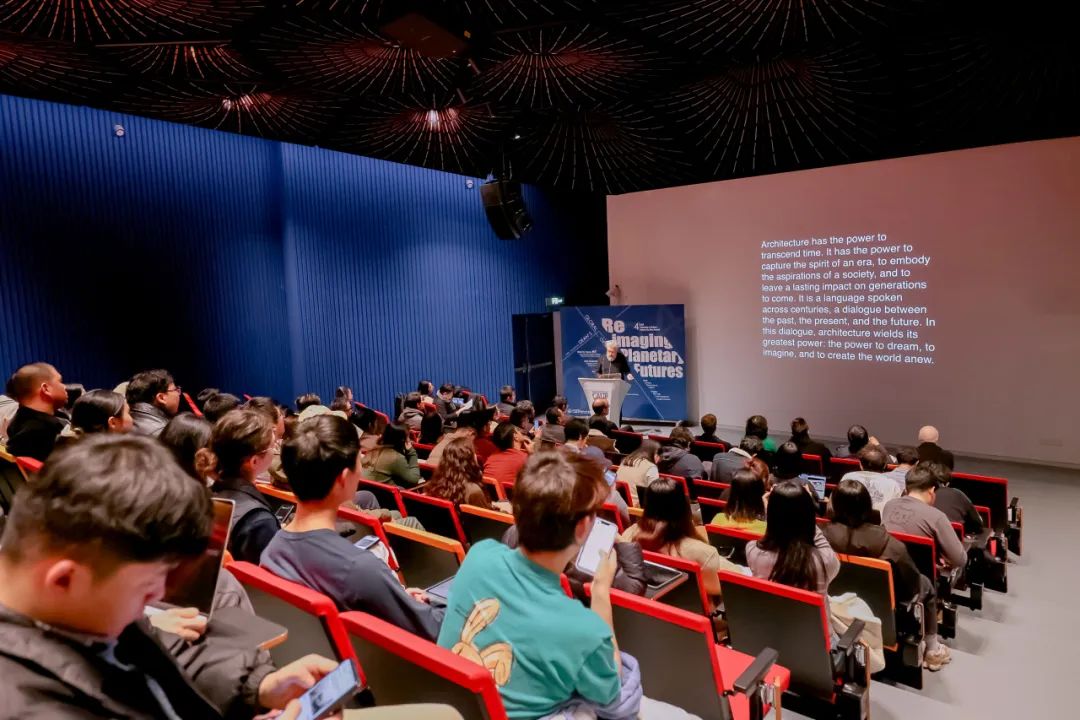
“
Reimagining Advancing Well-Being
”
Julie Willis
Dean and Professor, School of Design,
The University of Melbourne
Retrofit, Reuse, Reimagine: Building Futures
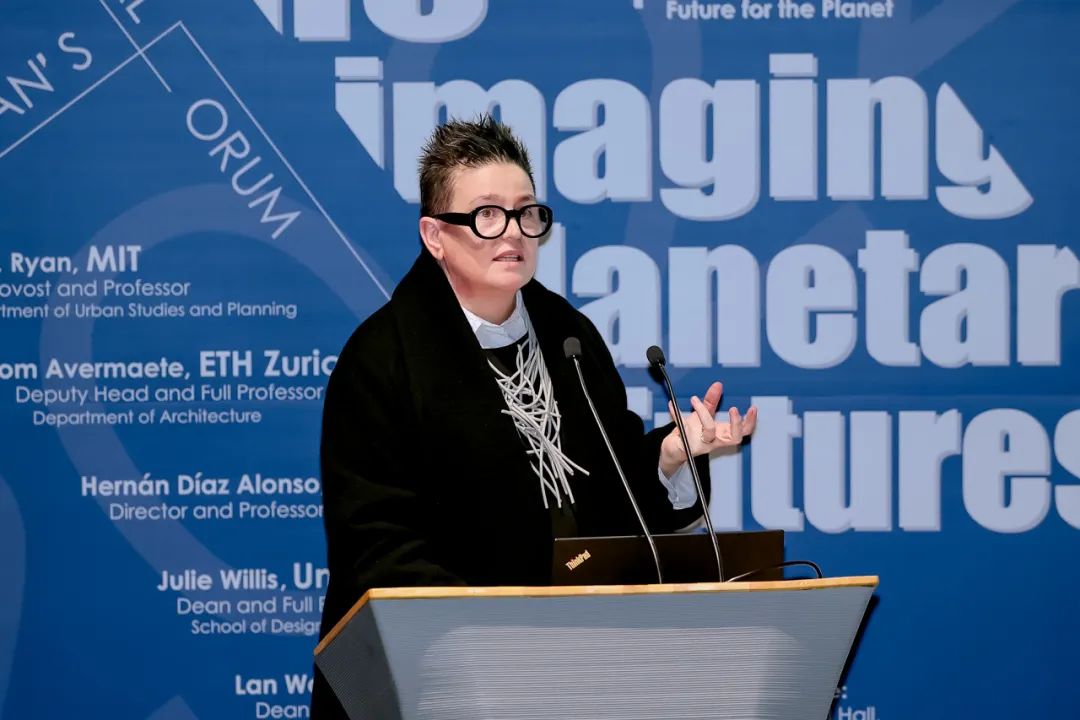
The lecture by Professor Julie Willis, a distinguished scholar in architecture and urban design, explored critical issues of sustainability and human well-being within the built environment. As the Dean of the Faculty of Architecture, Building and Planning at the University of Melbourne, Professor Willis showcased her expertise in Australian architectural history and the evolution of hospital architecture in Australia.
Professor Willis underscored the importance of key research areas, including the transformation of hospital architecture, rural public buildings, and the pursuit of equality and diversity within Australia's architectural profession. She highlighted the necessity of rethinking our approach to architecture in the context of planetary futures, emphasizing the reuse of the Earth's resources and heritage.
Data and its synthesis were presented as critical for effective change. Professor Willis discussed her colleagues' groundbreaking work on comprehensive databases that detail the lifecycle of construction materials. She stressed that understanding the embodied nature of materials is essential for valuing their future utility.
A notable concept introduced in the lecture was Nested Phoenix, advocating for prioritizing retrofitting over demolition as a transformative industry approach. Professor Willis emphasized the necessity of collective action across all levels—from individual buildings to cities and regions—aiming to foster sustainable practices on a larger scale.
The lecture also highlighted the correlation between biodiversity loss and urban heat island vulnerability, proposing the repurposing of underutilized spaces into productive landscapes. Professor Willis urged designers to reimagine urban spaces strategically, integrating biodiversity corridors and urban farming solutions.
In conclusion, she called on architects and designers to creatively engage with existing materials and environments while acknowledging their global significance. Through a rhetorical question about the future of design and education, she left the audience pondering the essential knowledge and tools required to envision sustainable futures.
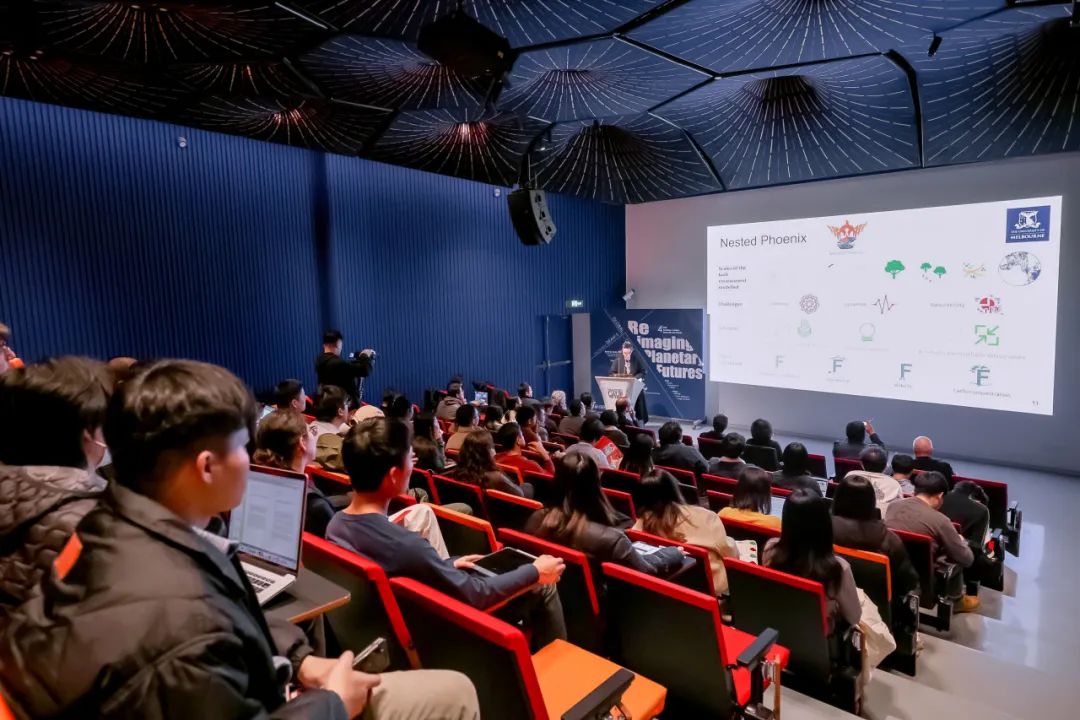
王兰 WANG Lan
Dean and Professor,
College of Architecture and Urban Planning, Tongji University
Healthy Cities for All
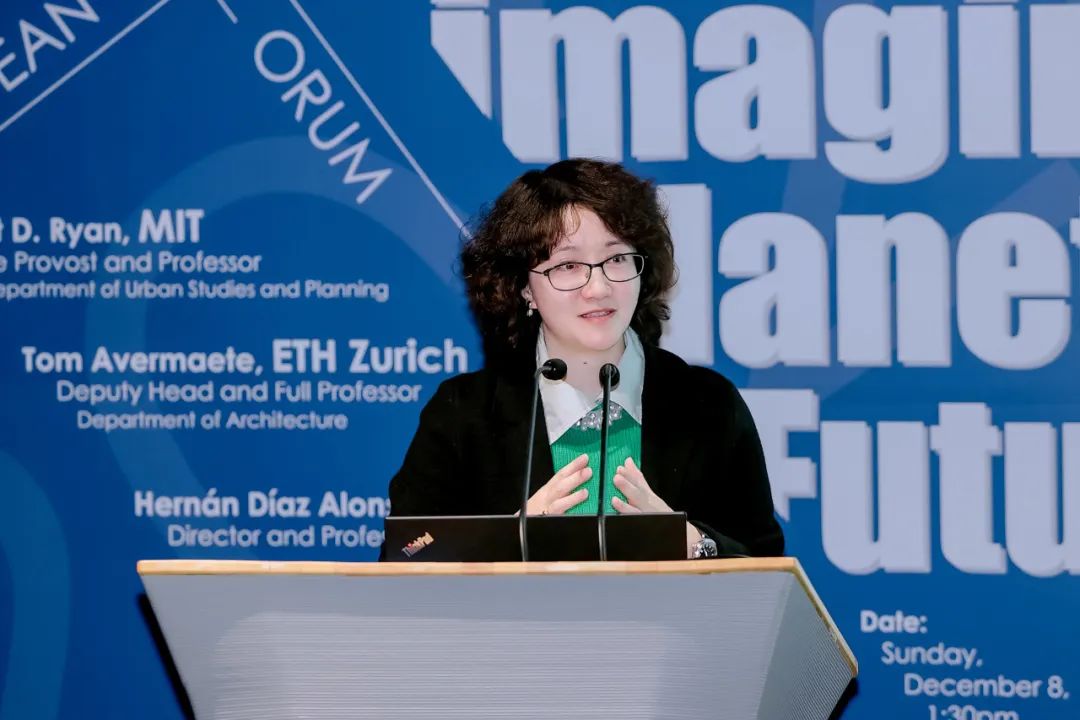
Professor Wang Lan's lecture on Healthy Cities for All explored the design of urban environments that promote health, well-being, and equity for all residents. The presentation delved into two core domains: Healthy City Science and Healthy City Planning.
During the lecture, Professor Wang introduced the Health Risk-Resource-Behavior Spatial Intervention Gradient Model, which provides a scientific theoretical foundation and practical pathway for healthy city planning by precisely identifying health risks, effectively integrating health resources, and actively promoting healthy behaviors.
At the technical level, the lecture elaborated on cutting-edge research utilizing GIS technology and spatial analysis methods in health risk identification, health resource allocation, and health behavior promotion. In particular, it presented a comprehensive technical roadmap for healthy city planning, highlighting two key technical systems: machine learning-driven health risk diagnosis and multi-factorial interactive planning optimization for slow transportation systems. These demonstrated the significant potential of technology in enhancing the health attributes of urban planning.
In the practical application segment, Professor Wang vividly illustrated multi-level healthy planning practices, ranging from macro-level comprehensive planning to micro-level community renewal, through rich case studies such as the healthy community series projects in Yangpu District, Shanghai, and health impact assessments in Qujing, Yunnan Province. These examples provided valuable insights into the practical implementation of the healthy city concept.
Lastly, Professor Wang offered a forward-looking perspective on future research and planning practices in healthy city science. She emphasized the need to further expand the multi-dimensional aspects of spatial value, promote deep cross-disciplinary integration of healthy city science with other fields, establish a tightly coupled innovation system that integrates industry, academia, and research, and deepen the interactive integration of theoretical research and planning practice. Collectively, these efforts will drive the continuous progress and development of healthy city construction.
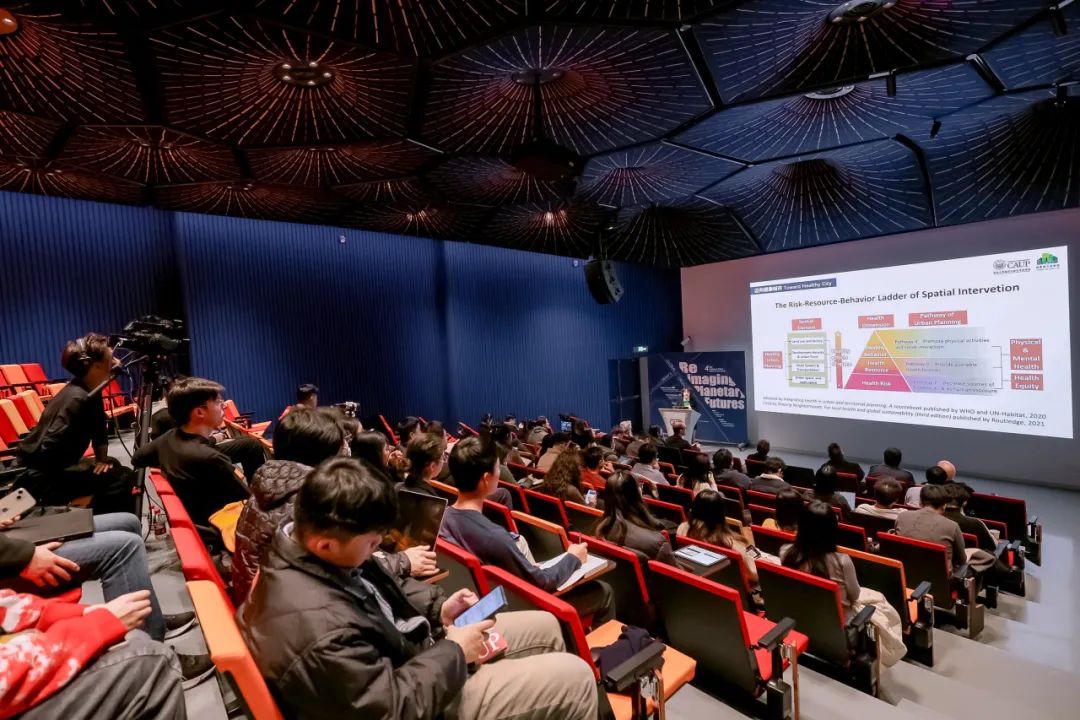
Panel discussion
Theme
Forming a United Future for the Planet
Moderator
Philip F. Yuan
Vice Dean and Professor
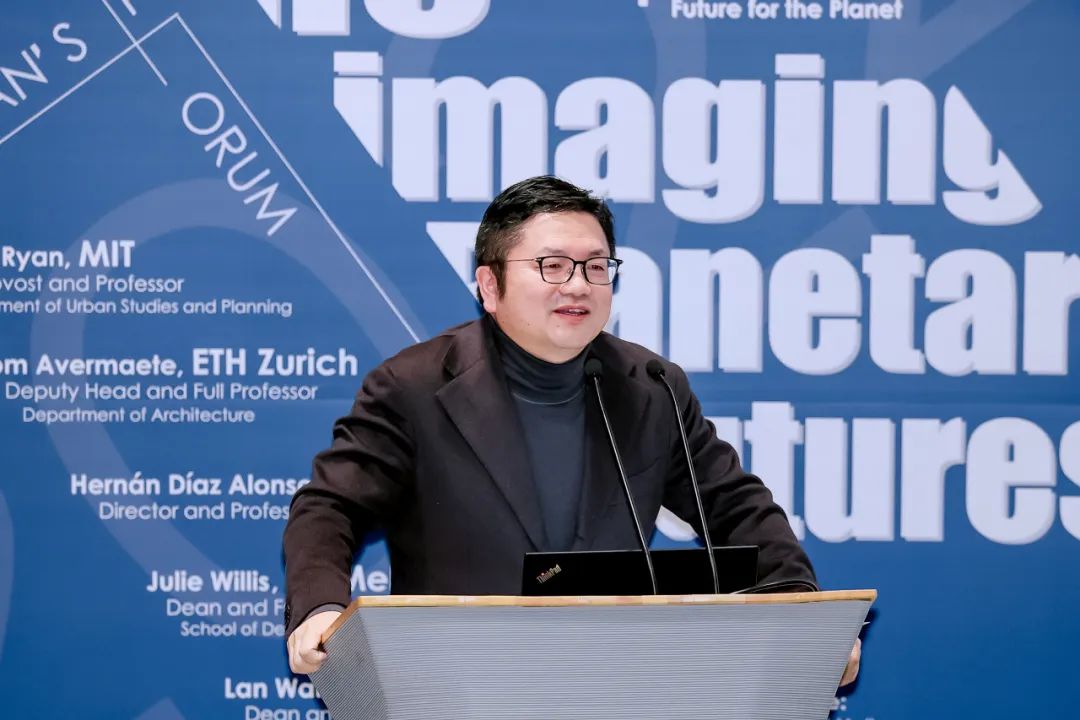
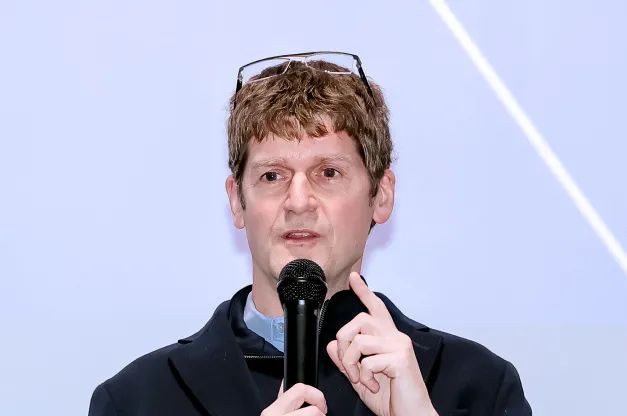
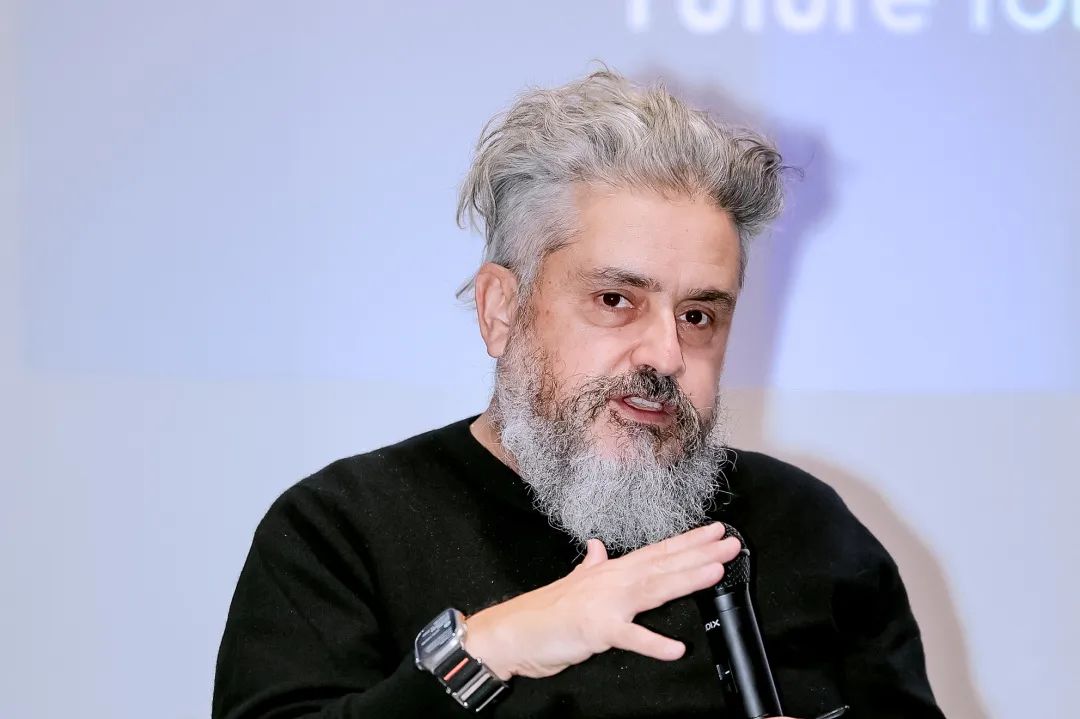
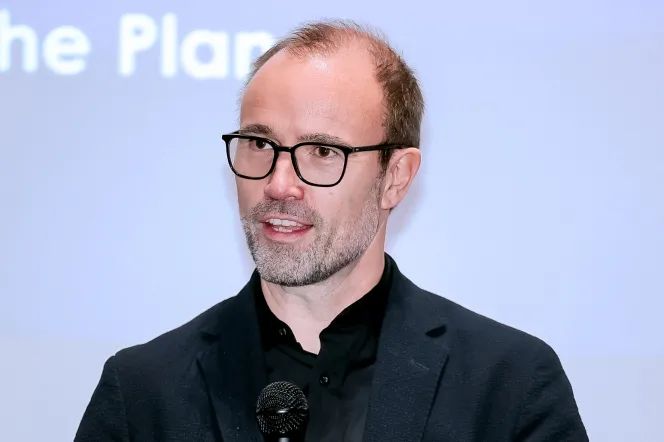
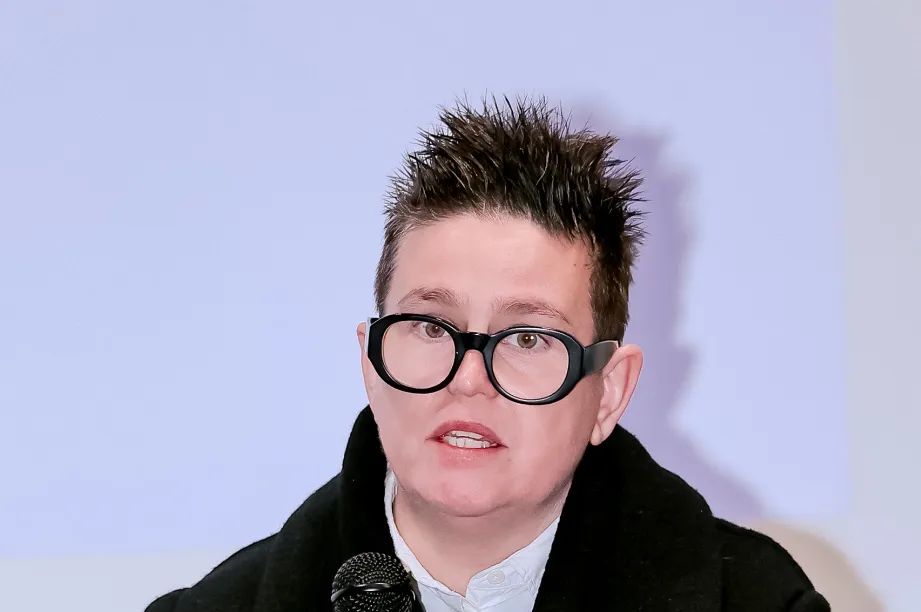
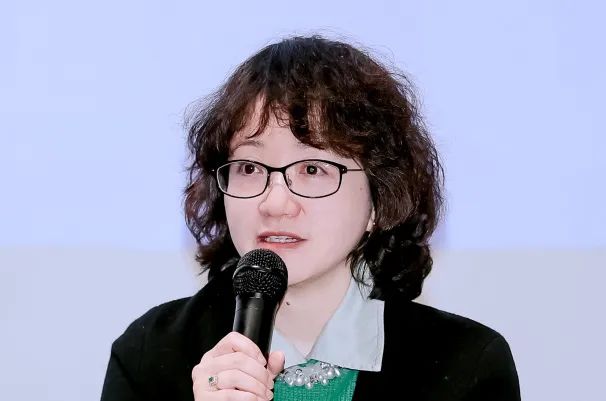
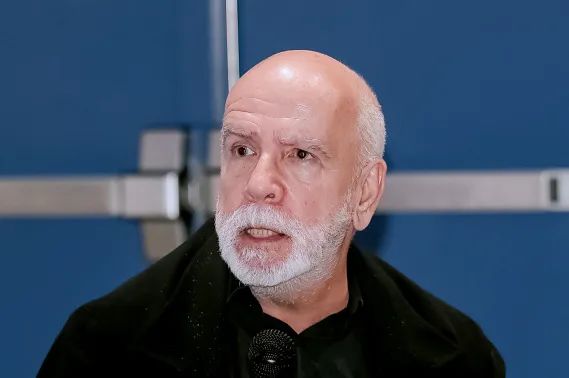
Brent D. Ryan, Tom Avermaete, Hernán Díaz Alonso, Julie Willis, Lan Wang, Manuel Blanco
Philip F. Yuan posed a series of thought-provoking questions to the attendees with his keen academic insight and profound professional expertise. These questions centered around topics such as Where does architecture intersect with meaning?, How to achieve a delicate balance between urban design and the narrative of architectural culture?, and How to reconcile architectural energy efficiency with sustainability? The guests responded with insightful and diverse perspectives, drawing from their respective research areas and practical experiences.
Some guests discussed the renovation of historic buildings, exploring ways to enhance energy efficiency while preserving their original features. Others analyzed the balance between functionality and cultural significance from a macro perspective of urban design. Additionally, guests shared the latest technological innovations, showcasing the boundless possibilities for future buildings in terms of energy efficiency and sustainability.
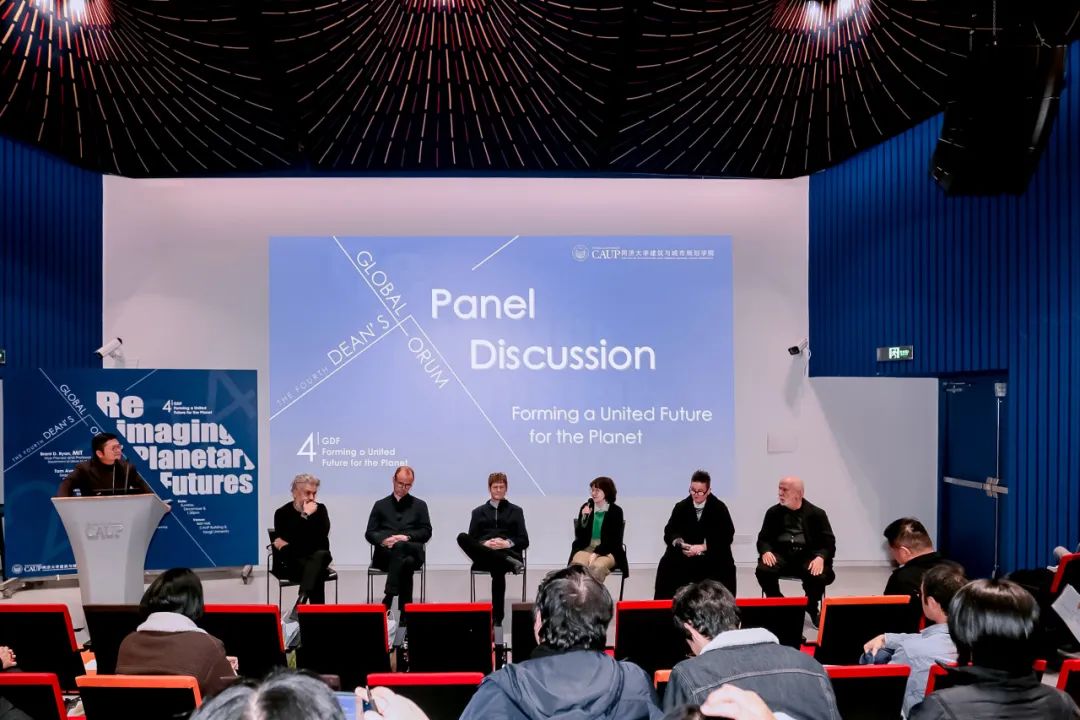
MOU signing ceremony
“
Memorandum of Understanding with SCI-Arc
”
The Memorandum of Understanding formally establishes a partnership between the School of Architecture and Urban Planning and the Southern California Institute of Architecture (SCI-Arc). It encompasses an Accelerated bachelor's/Master's Articulation Pathway Program, facilitating seamless progression from undergraduate to graduate studies, and establishes a mechanism for faculty exchanges. The agreement also aims to gradually explore areas of collaboration, fostering interdisciplinary joint innovation and cooperation.
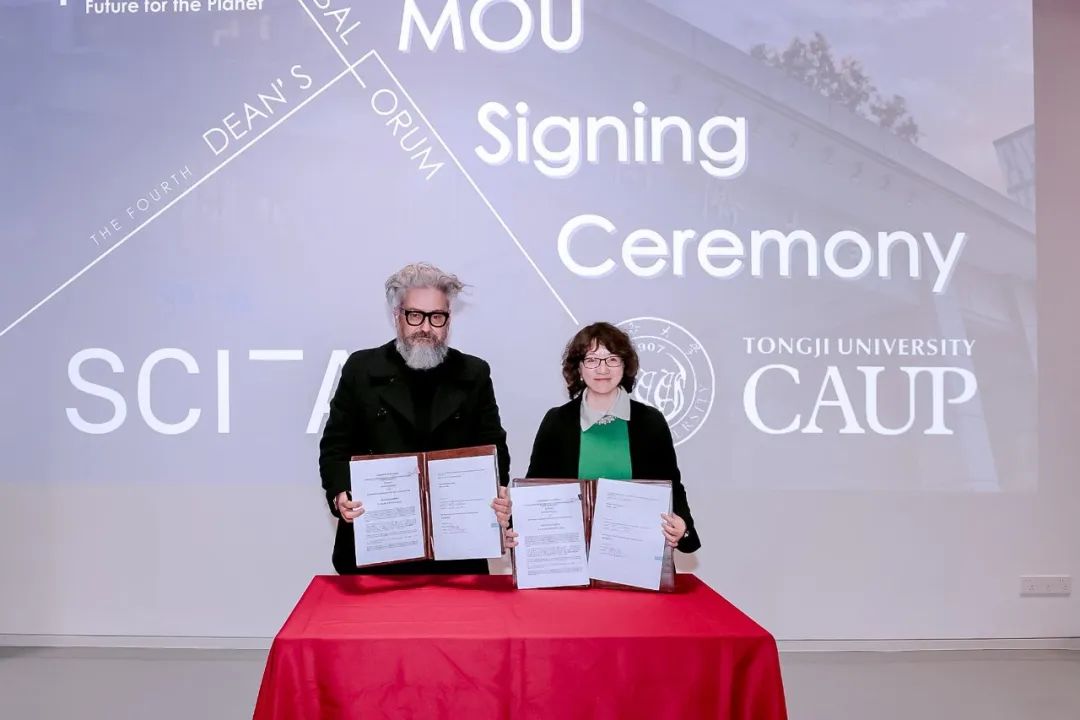
“
Memorandum of Understanding with the University of Melbourne
”
The Memorandum of Understanding officially sets forth the cooperative relationship between the College of Architecture and Urban Planning and the University of Melbourne. This agreement is focused on strengthening collaboration, particularly in key areas such as establishing a short-term study abroad program to promote student exchanges, in alignment with mutual goals in research and teaching capacity building.
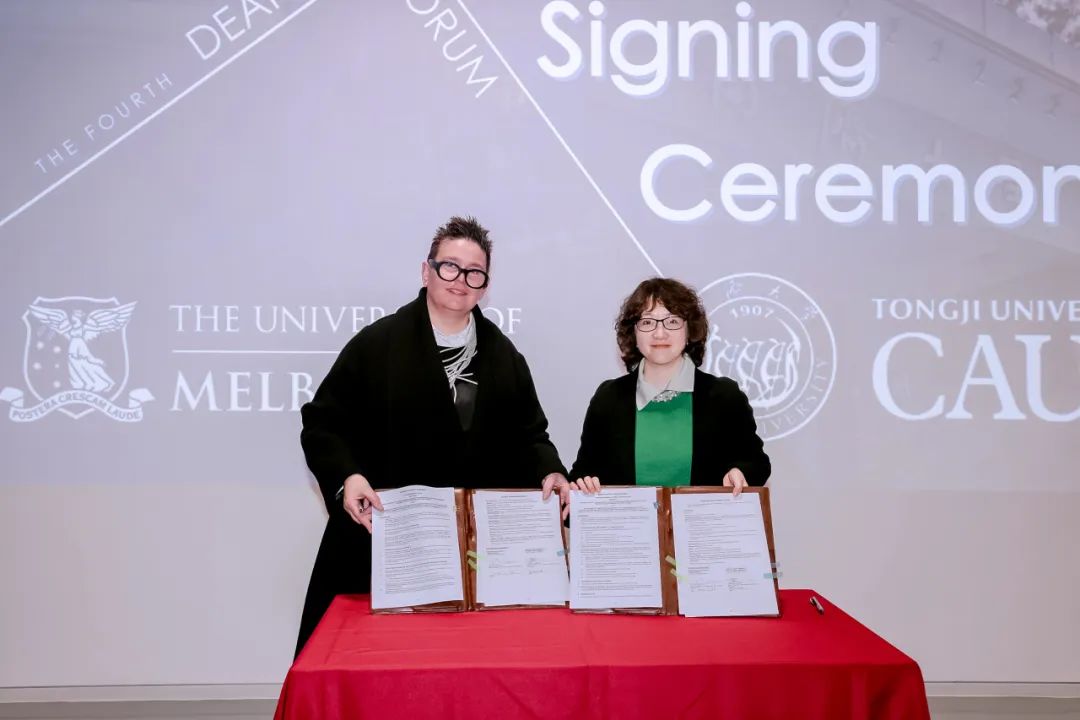
Recently, the College of Architecture and Urban Planning is about to embark on a new chapter of international cooperation by signing Memorandums of Understanding (MoUs) with the world-renowned University College London (UCL) and the University of British Columbia (UBC). This initiative aims to deepen cross-national academic exchanges and facilitate the sharing of educational resources and research achievements. Through close collaboration with UCL and UBC, the School will promote transnational integration of academic research, provide a broader international perspective and learning platform for faculty and students, and help the School take more solid steps on the global stage.
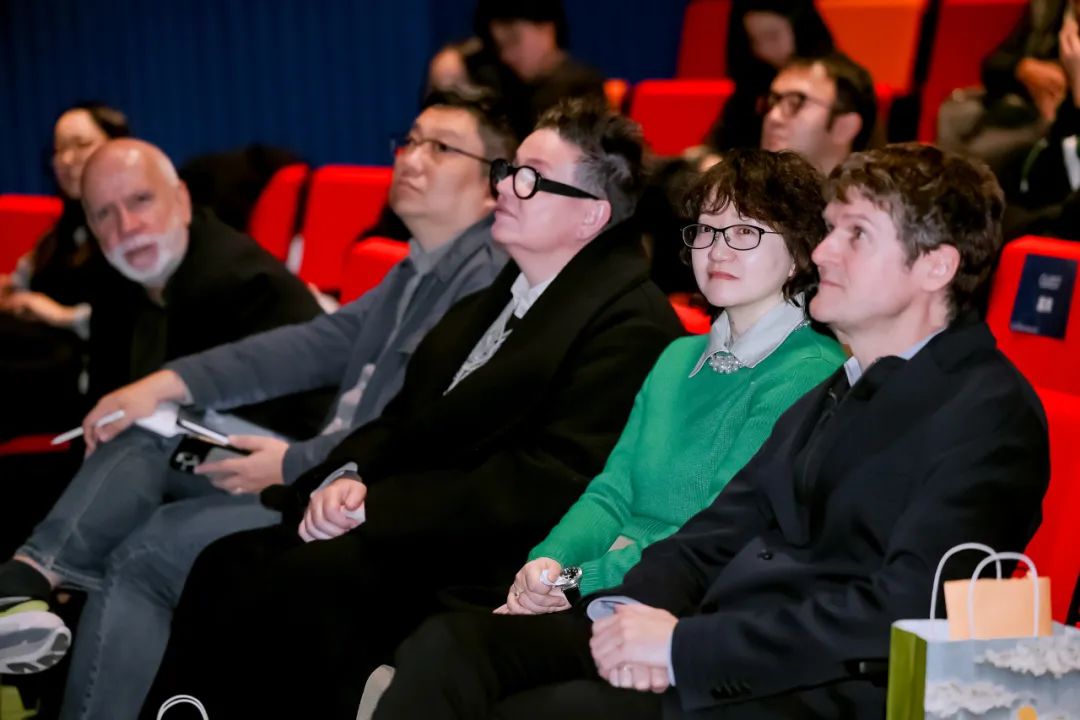
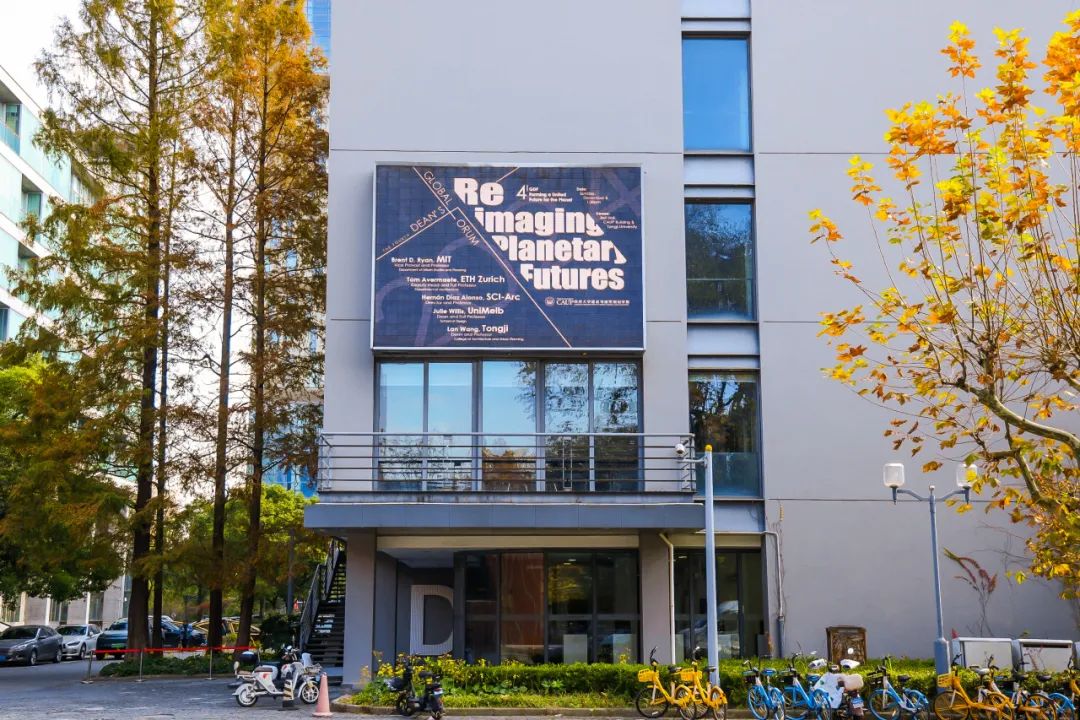
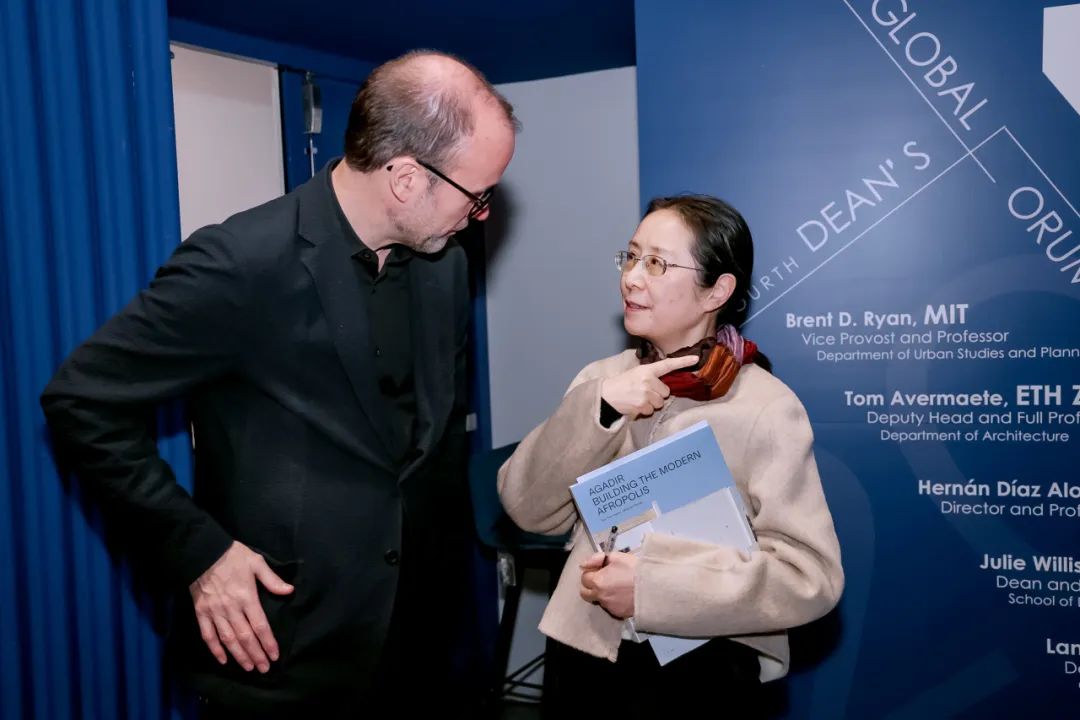
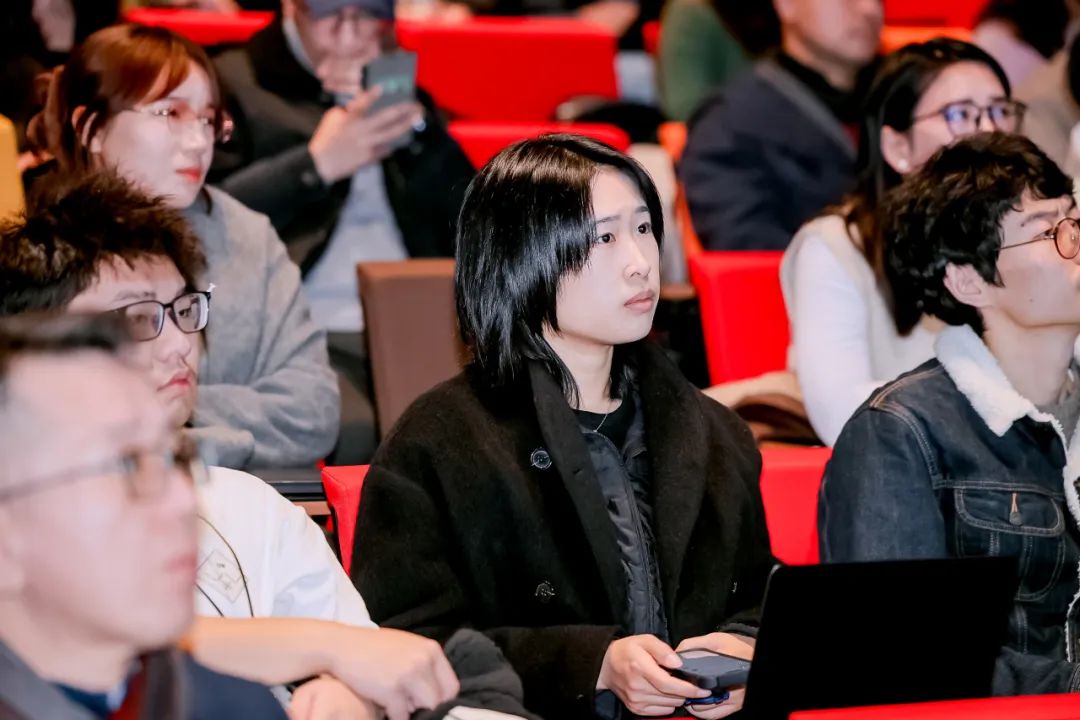
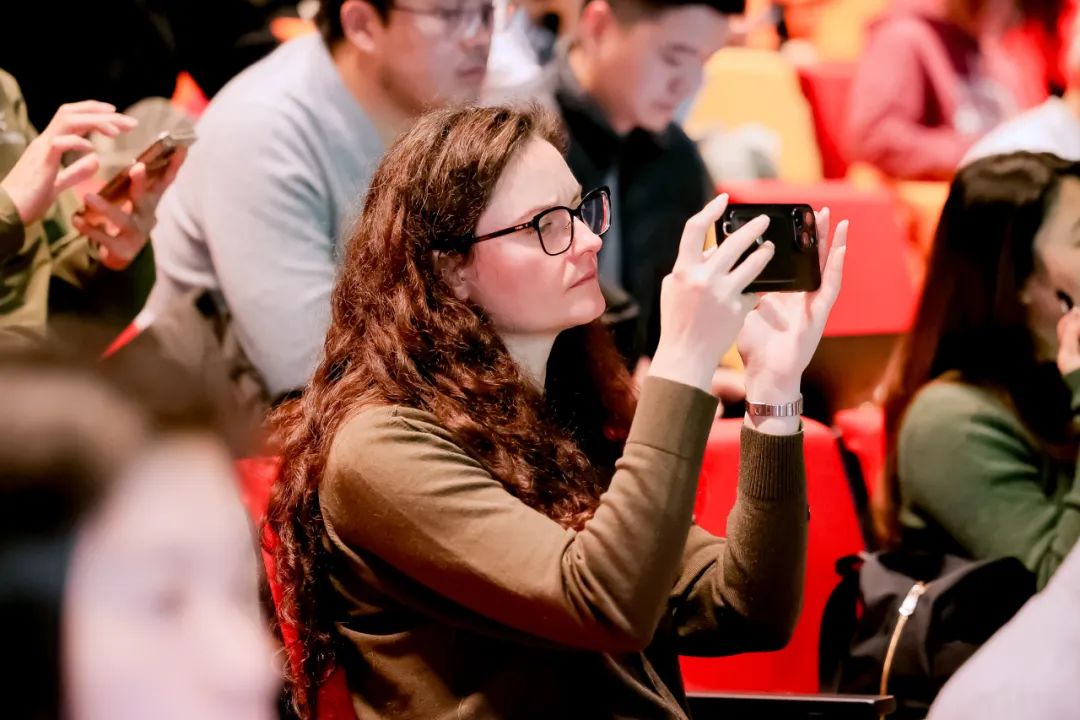
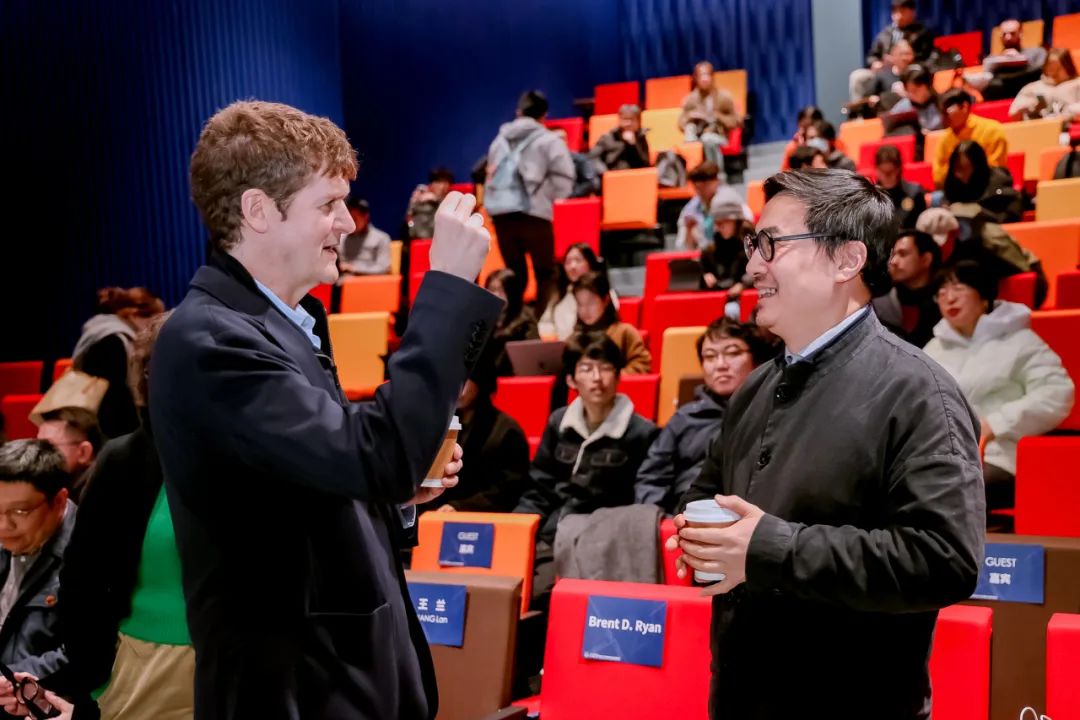
Closing Remark
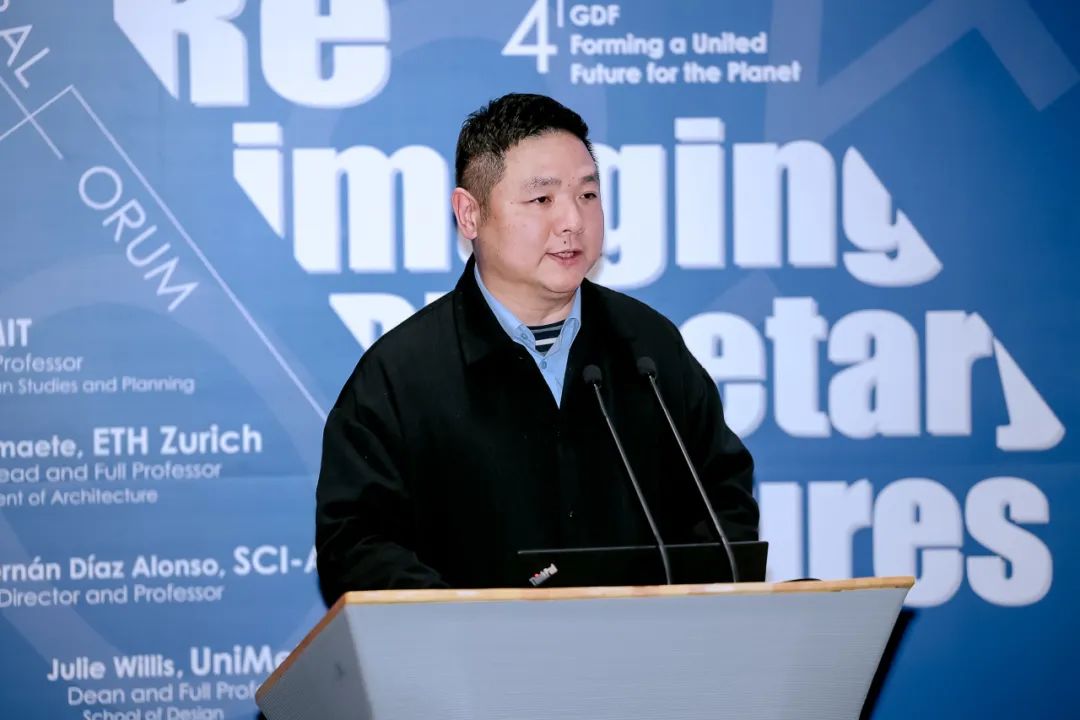
Professor Li Xiangning, Head of the Division of Planning and academic development, delivered the closing speech. Professor Li first expressed his gratitude to all the scholars for their enthusiasm in promoting the Dean's Forum and academic dialogue, and expressed his delight at the strategies presented by the guests for building healthier and more inclusive cities. As the former Dean of the School of Architecture and Urban Planning, he has witnessed the four-year journey of the Dean's Forum, both online and offline. He hopes that the Forum will continue to thrive, allowing top universities, renowned scholars, faculty, students, and friends to jointly pass on its ideas and inspirations, constantly contemplating and innovating.
Look to the future
In the complex current of changing socio-economic technology and ecological environment, faced with the rapid development of industrial technology, the Dean's Forum has become a highland for the collision of ideas, where speakers and attendees gather to explore how to precisely capture the limitless opportunities of the future planet, how to find direction amidst the intricate trends, and how to face future challenges with wisdom and courage.
The theme of Reimagining Planetary Futures is not only a forward-looking contemplation of the challenges faced in shaping the future of our planet, but also a strong voice of the times and a declaration of action issued by all humanity in the face of this rapidly evolving planet. The proposal of this theme carries the boundless aspirations of scholars in architecture, planning, and landscape fields for the future. We firmly believe that all scholars, along with the faculty and students of the School of Architecture and Urban Planning, will continue to move forward with their persistent pursuit of sustainability, profound understanding of resilience, and broad recognition of inclusivity, conceiving and constructing a blueprint for a future planet that is both sustainable and resilient, while also embracing diversity.
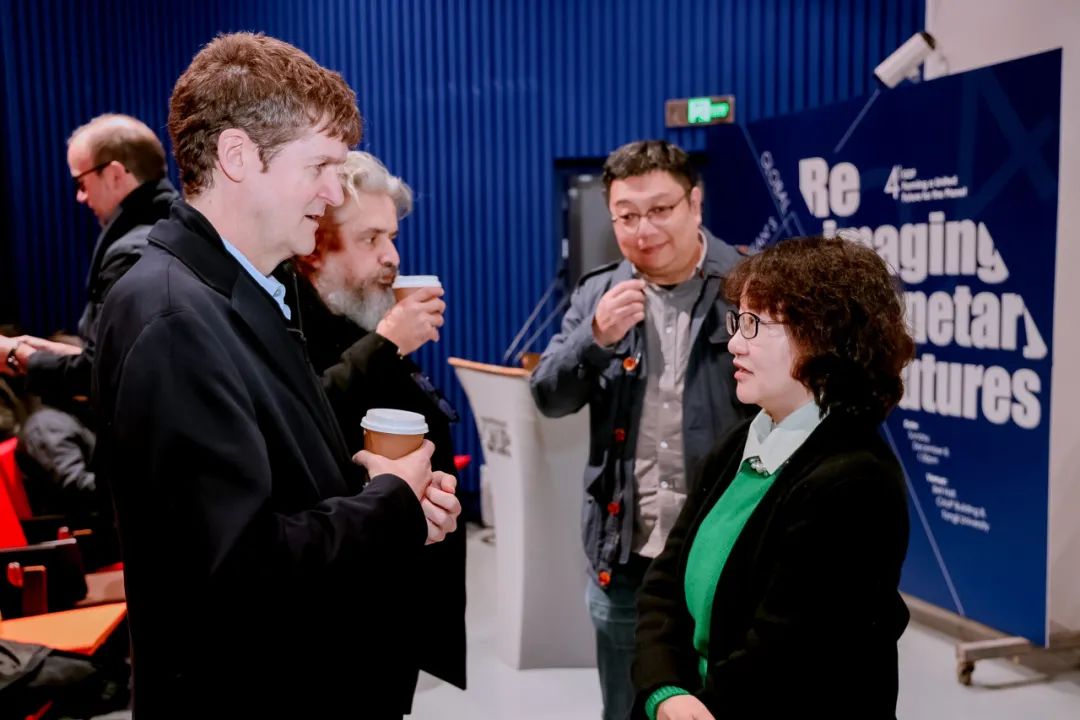
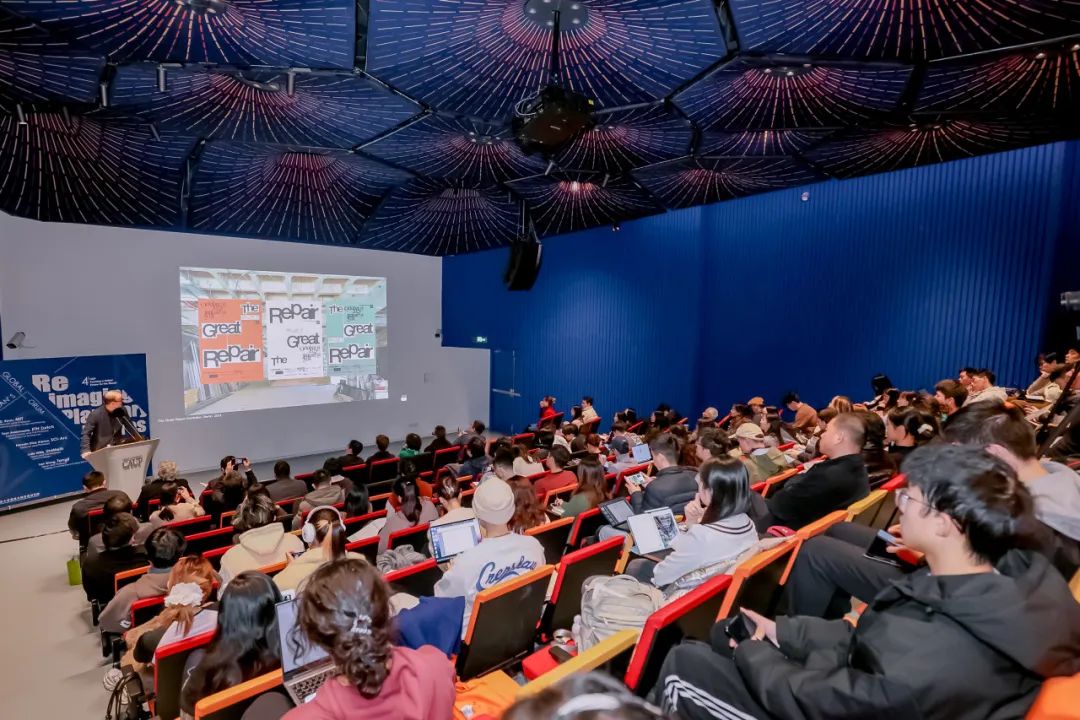
In 2021, the College of Architecture and Urban Planning, Tongji University initiated the Global Dean’s Forum, aiming to establish a global dialogue platform that brings together deans and researchers from renowned institutions worldwide to jointly outline a blueprint for change in architecture, urban planning, and landscape architecture fields. By 2024, the Dean’s Forum has successfully attracted the participation of nearly 30 top international universities, becoming an international platform for sharing cutting-edge ideas and promoting academic exchanges.
 ABOUT US
ABOUT US




